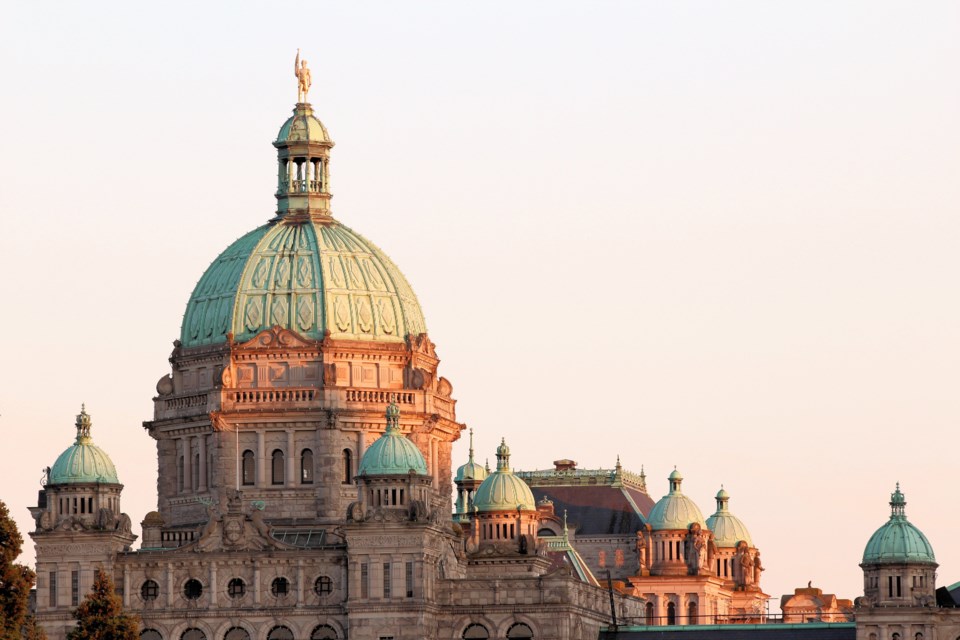18 months into their term – and just their second full budget – the NDP seem content to stay the course.
If you’re looking for a hints of a government positioning itself for an early election – you’re going to have to squint.
“Budget 2019 is balanced both fiscally, and in its approach,” says Finance Minister Carole James – a sentiment – and probably and exact line – you can expect to hear more often.
Taking their cue from Justin Trudeau’s federal Liberals, the NDP are actively and consciously trying to position themselves as defenders of middle class, protecting them from rapacious forces of the market and those who say things like “the market.”
It’s an ambitious program. It means big increases in both spending and revenue collection. Spending is going up $3.3 billion over three years – and provincial revenue is expected to keep up, increasing by $3.5 billion over the same period.
For many, the issue is where it’s coming from.
“Can the business community afford to keep funding these investments?” asks Val Litwin, president of the BC Chamber of Commerce, “I don’t know that we can.”
“Over the next three years, we’re looking at an additional $5 billion in new cost to business,” says Litwin, listing the Employers Health Tax, and increases to the carbon tax, corporate and minimum wage as examples.
For Budget 2019, the provincial government raised $32.6 billion, projected to increase to $37.1 billion over three years. An increase of $4.5 billion – which the government attributes to higher wages and general population growth.
“It’s a big bill to foot, and that’s not going to be good for business,” says Litwin.
To keep footing the bill, the economy has to keep chugging.
“The province is coasting a bit on what has been a very buoyant economy,” says Jock Finlayson, Executive Vice President of the Business Council of BC, “we would have liked to have seen more measures on the tax side to strengthen the appeal of BC as a place to invest.
“We don’t think there’s enough around building a competitive economy.”
The budget assumes continued “nation-leading stable growth,” agrees Litwin.
For now, that’s down the road. For now, the coffers are still full.
Budget 2019 has a surplus of $374 million – lower than projected last year. The provincial government cites ICBC, BC Hydro, wildfires – and interestingly, higher than expected tax credit expenses, particularly for tax credits – as the key reasons why.
What you can expect the NDP to talk about:
The B.C. Child Opportunity Benefit. A replacement for the Early Childhood Tax Benefit, it extends eligibility by 12 years, until kids turn 18.
Eliminating interest in student loans, a straightforward, self-explanatory and common-sense measure.
A three-year infrastructure budget of $20.1 billion. More than half is going towards projects in transportation ($6.6 billion), and health ($4.4 billion), respectively.
CleanBC – the centrepiece for the NDP’s overall climate change strategy, and the implicit tradeoff for LNG Canada. (Interestingly, it’s also the one area the NDP are happy to credit the Green Party.)
Budget 2019 includes $902 million over three years, in part to meet ambitious emissions reductions targets – 40% less than 2007 levels by 2030.
Reconciliation – the province is sharing $3 billion over 25 years with First Nations, for an average of $120 million per year.
What you can expect the NDP to be more reticent about:
The debt is going up – a lot. The NDP is touting the elimination of the operating debt – a goal the BC Liberal government openly worked towards, and the NDP deserve credit for following through. But over the next three years, they estimate the provincial debt will increase by $14 billion. The key indicator ratios – Debt to GDP and Debt to Revenue – are also both increasing.
Housing starts and residential sales starts projected down over three years. Despite increasing demand, housing starts are expected to make a fairly shocking drop of more than 13,000, from 43,664 in 2017 to 30,548 in 2023.
“They have this laudable goal of building 114,00 homes over 10 years, says Anne McMullin of the Urban Development Institute, “but there’s nothing in [the budget] to incentivize that – in fact, there’s everything in there to disincentivize that.”
The NDP attribute this to an abnormally high number of starts over the past few years, and the decline is merely a return to historical averages. But as demand inarguably increases – and that demand continues to outstrip supply – it’s hard to square such a whopping drop.
“The government wants to add 500,000 new jobs, and they’re talking about reducing the number of homes built by 30%. If you want to attract more jobs, we should be looking at how do we create more home and more options for people, rather than fewer,” says McMullin.
ICBC really isn’t doing well. According to the Insurance Bureau of Canada, ICBC currently owes more money than they have in assets.
“If all claims could come due today, they could not afford to pay them out,” says Aaron Sutherland – and that’s factoring in expected rate hikes.
Are they technically insolvent? They’re backstopped by government, so it’s complicated.
“If they were regulated like any other insurer in this country, they would have been shut down years ago, and been declared insolvent.”
What does it all mean?
There are rumours in the legislature of a fall election. As the thinking goes, with proportional representation dead and buried, the NDP see their best chance at a majority government diminishing rather than increasing as time goes on.
It’s a plausible, even compelling idea. But if that were the case, you might expect a much bigger splash in this budget – some big retail items.
If the budget is anything to go by, the NDP expect on serving their full, four-year term.
Maclean Kay is Editor-in-Chief of The Orca



